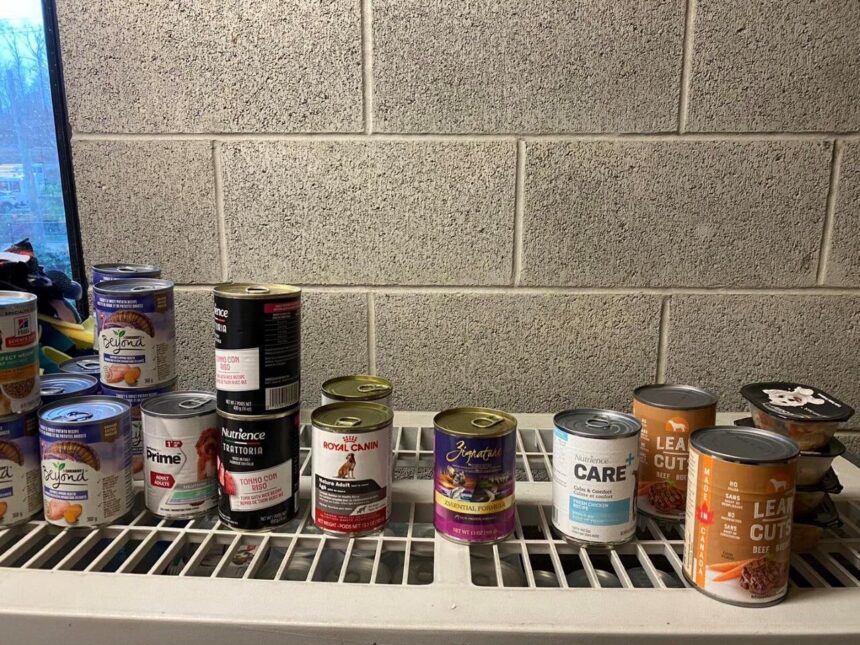In the shadow of British Columbia’s ongoing cost-of-living crisis, a quieter emergency is unfolding for the province’s most vulnerable pet owners. The BC SPCA’s network of pet food banks is facing a critical shortage of supplies as demand surges to unprecedented levels, threatening the welfare of countless companion animals across the region.
“We’ve seen demand for pet food assistance double in many communities since last year,” explains Jodi Dunlop, manager of the BC SPCA’s Vancouver branch. “Meanwhile, donations have dropped by nearly 40% in some locations, creating a perfect storm for pet owners already struggling to make ends meet.”
The organization, which operates 33 pet food banks throughout British Columbia, distributed over 100,000 kilograms of pet food to financially vulnerable families last year alone. However, current inventory levels suggest they may fall significantly short of meeting this year’s intensified need without immediate community support.
Behind these statistics are heart-wrenching stories of British Columbians facing impossible choices. Elderly pensioners on fixed incomes skipping meals to feed beloved companions. Young families forced to consider surrendering pets that have been emotional anchors during difficult times. New Canadians who brought pets with them as their only connection to home, now facing potential separation.
“Our pet food banks represent more than just nutrition—they’re keeping families together,” says Emma Lancaster, BC SPCA’s outreach coordinator. “The human-animal bond is profoundly important for mental health and emotional wellbeing, especially during times of financial hardship.”
The shortage extends beyond basic kibble and wet food. Critical supplies such as cat litter, specialized foods for animals with health conditions, and pet medications are also dwindling rapidly. These items, often prohibitively expensive for owners struggling with basic necessities, can mean the difference between a pet staying with their family or being surrendered to already-overcrowded shelters.
Local veterinarians have reported seeing concerning trends that correlate with the shortages. “We’re noting more cases of preventable nutritional deficiencies and stress-related conditions in pets from lower-income households,” confirms Dr. Sarah Chen, a Vancouver veterinarian who volunteers at community clinics. “When owners can’t access appropriate food, they sometimes resort to feeding pets human food that lacks essential nutrients.”
Economic analysts point to multiple factors exacerbating the situation. “The combination of inflation, housing costs, and stagnant wages has created unprecedented financial pressure on B.C. households,” explains economist Martin Rodriguez from the University of British Columbia. “For many families living paycheck to paycheck, pet-related expenses are becoming unsustainable without assistance.”
The BC SPCA is launching an emergency donation drive with collection points at all branches and partner pet stores across the province. Most urgently needed are dry and wet cat and dog food, cat litter, puppy formula, and specialized prescription diets. Monetary donations are also being accepted through the organization’s website, with funds directed specifically toward replenishing pet food bank supplies.
Community response has already begun, with several local businesses stepping up. Vancouver-based pet food manufacturer Natural Balance has pledged to match donations up to 5,000 kilograms, while grocery chain Urban Fare has designated donation bins at all locations.
For British Columbians facing the difficult choice between feeding themselves or their pets, the pet food banks offer a crucial lifeline. Anyone needing assistance can contact their local BC SPCA branch for information about accessing these resources, which are provided without judgment and with full confidentiality.
As winter approaches and household expenses rise further, the question remains: can our communities mobilize quickly enough to prevent a wave of pet surrenders that would overwhelm an already strained animal welfare system? The answer may depend on how deeply we value the bond between people and their animal companions during times of economic hardship.














